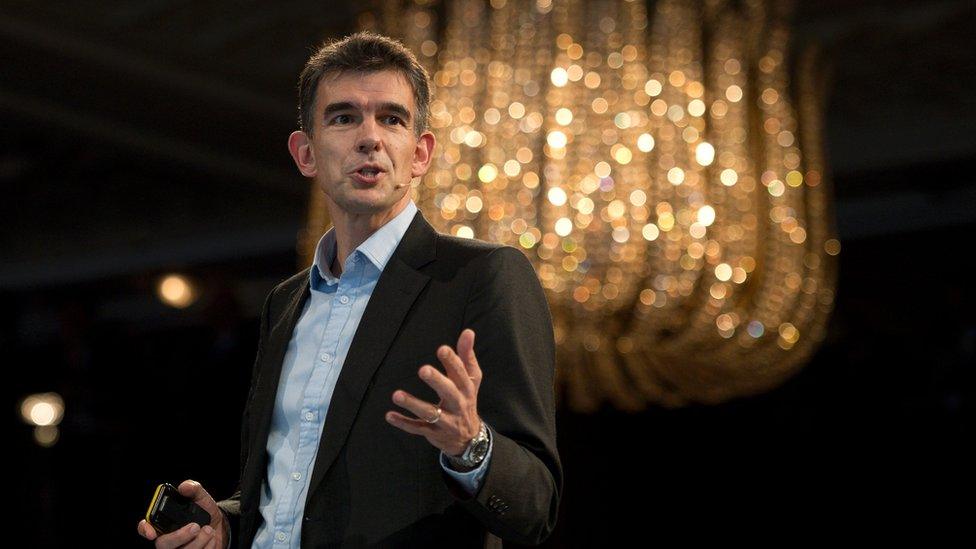Google's crisis of confidence
- Published
- comments

Matt Brittin's appearance at a London advertising conference could not have been better timed - for the watching journalists at least.
Google's European boss took to the stage at Advertising Week Europe just as the storm over adverts appearing next to extremist videos on YouTube hit new heights.
The fact that that Marks & Spencer has joined the government and a clutch of other organisations in withdrawing their ads from Google's platforms means the search giant is facing a crisis of confidence in its ability to police its service.
As Google is effectively the world's most lucrative ad business, losing the trust of its customers is a serious matter. So Mr Brittin started by saying sorry: "We apologise when anything like that happens, we don't want it to happen and we take responsibility."
However, he slightly undermined that by saying the impact on advertisers has often been a matter of pennies, not pounds. In other words, hardly anyone had seen the ads appearing next to the questionable YouTube videos.
Clarity challenge
Mr Brittin hastily went on to pledge that Google was taking the issue very seriously, investing millions of dollars and employing thousands of people to ensure that "bad advertising" does not get through.
There are two difficult issues for Google here: spotting videos that are illegal and should be removed from YouTube; and determining which are legal but not suitable to carry advertising.
Pressed by reporters on whether the firm would employ people to actively hunt down extremist videos, Mr Brittin was evasive, indicating that a combination of smart technology and user alerts to harmful content was a better option.
Yet his main challenge will be in providing more clarity to customers when it comes to deciding which videos are "ad-safe". Drawing the line will not be easy. As he pointed out, news organisations put a lot of disturbing content online, but need to earn money from advertising if they are to continue to invest in journalism.
Mr Brittin seems confident that by having a thorough look at its policies and showing advertisers how they can control where their messages appear, Google can regain their confidence.
The company, which insists it is a technology platform and not a media business, is finding it ever harder to hold that line.
Media firms face tight regulation - and that is what could be coming Google's way if it fails to clean up its act.